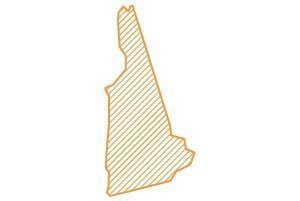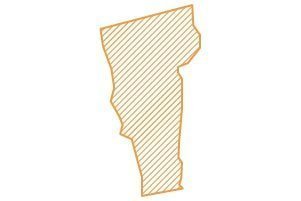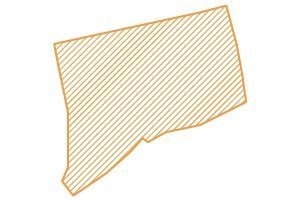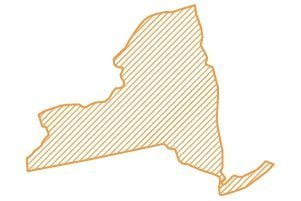You might ask, why is early childhood education so important? Well, research has shown that a child’s earliest years lay the foundation for their future success. It is during this period that their brains are rapidly developing. By providing quality education and care during these formative years, we can unlock the immense potential within each child. And when it comes to fostering bright minds, Maine takes its educational system seriously.
Considering the importance of early childhood education, Maine boasts a rich educational system that prioritizes the well-being and development of its youngest citizens. The state is known to offer a diverse range of learning environments that cater to the unique needs of each child.
In this article, we will walk you through the innovative programs that make Maine a shining example of how investing in the early years can shape future generations. Let’s get right into it!
Early Childhood Education Degrees in Maine– Onground
Maine offers a wide range of on-ground degree programs in Early Childhood Education to kickstart your journey. Some of them include:
Associate Degree Programs in Early Childhood Education
Northern Maine Community College – Associate Degree in Early Childhood Education

Northern Maine Community College (NMCC) offers a two-year associate degree program in Early Childhood Education specifically designed to educate childcare professionals with skills necessary for advanced positions in organizations. This program goes beyond the basics, providing a well-rounded education that prepares students for success in their future careers.
One of the highlights of NMCC’s program is its emphasis on practical experience. Students have the opportunity to gain valuable hands-on training through field experiences in childcare settings. This immersive learning approach allows students to apply the theories and techniques they’ve learned in the classroom to real-life situations.
The main courses cover child development, early education techniques, curriculum planning, observation and assessment, and working with diverse populations. This well-rounded approach ensures that students graduate with a solid understanding of the fundamental principles of early childhood education.
To apply for the Early Childhood Education program at Northern Maine Community College (NMCC), you need to follow a simple admissions process. First, complete the NMCC application and pay the $20 application fee. Next, submit your official high school transcript or HiSET/GED scores. If SAT scores are unavailable, you will need to take placement tests. Lastly, applicants are required to submit a request for a Maine DHHS Child Protective Service record search.
Graduates of this program can work at child care centers, nursery schools, public schools, summer and day camps, recreational centers, preschool programs, and other agencies that serve children in the future. NMCC provides a solid educational foundation that empowers you to make a positive impact on the lives of young children.
Eastern Maine Community College – Associate in Applied Science in Early Childhood Education

The Early Childhood Education program at Eastern Maine Community College (EMCC) is designed to provide individuals with the necessary skills and knowledge for rewarding careers in the field of early childhood education.
The program offers an Associate in Applied Science (A.A.S.) Degree, providing both theoretical foundations and practical learning experiences to prepare students for various occupations working with young children from birth through age eight, including those with special developmental and learning needs.
One important advantage of the program is its potential to serve as a pathway for students pursuing a Bachelor’s Degree in a PreK-3 teaching certification program. It allows students to continue their education and expand their career opportunities in the field of early childhood education.
The associate degree program provides a comprehensive education, covering key learning objectives that include applying current principles of child development and positive guidance, developing strategies for respectful and supportive relationships with children and their families, utilizing observation and assessment tools for tracking progress and communicating with families and professionals, implementing meaningful and challenging curriculum, and engaging in reflective practices and professional growth.
One of the prerequisites to enroll in this program is the completion of high school-level Algebra I. This requirement ensures that students have a foundational understanding of basic algebraic concepts, which can be beneficial in various aspects of the Early Childhood Education curriculum, such as data analysis and problem-solving skills.
The graduates are equipped to plan and implement developmentally appropriate experiences and environments for young children, form respectful relationships with diverse individuals, use observation and assessment tools effectively, implement an engaging curriculum, and engage in continuous professional growth.
Washington County Community College – Associate in Applied Science in Early Childhood Education

The Early Childhood Education program at Washington County Community College (WCCC) is designed to meet the standards set by the National Association for Education of Young Children (NAEYC) and the credentialing guidelines for the Child Development Associate (CDA).
The curriculum provides students with a comprehensive understanding of child growth and development, age-appropriate curriculum, and instructional techniques. To fulfill the CDA requirement of the Council for Professional Recognition, students are required to complete a 480-hour field experience. WCCC has established articulation agreements with 18 high schools, Maine Roads to Quality, and several universities, allowing for the transfer of credits earned in the program.
Graduates of this program qualify for positions as teachers or childcare center directors in both public and private childcare facilities. The degree is also necessary for continued employment in federally supported childcare institutions such as Head Start. Graduates may also apply for Educational Technician II certification through the division of certification at the Maine Department of Education.
The program offers two-degree options: the Associate in Applied Science (A.A.S.) degree and the Associate in Science (A.S.) degree. The A.A.S. degree is intended for students seeking immediate employment in the field. In contrast, the A.S. degree is designed for those who plan to transfer to a four-year college or university for further studies in Early Childhood Education, Child Development, or Mental Health and Human Services.
Upon completing the program, graduates will possess a solid theoretical foundation in Early Childhood Education, Psychology, Sociology, and family studies. They are eligible to apply for the national CDA credential, create a safe and healthy environment, demonstrate knowledge of child development, foster a positive classroom environment, engage community resources, promote positive identities, and meet the standards set by NAEYC.
Bachelor’s Degree Programs in Early Childhood Education
Thomas College – Bachelor of Science in Early Childhood Education

Thomas College offers a comprehensive Early Childhood Education program with three distinct tracks to choose from, including the option for dual certification. Students can specialize in Early Childhood Education (Birth-Age 5), Early Elementary Education (PK-Grade 3), or pursue a combined track encompassing both age ranges.
This program is designed to provide field-based preparation, incorporating various educational approaches such as Early Head Start, Montessori, Reggio Emilia, and Waldorf. Through a partnership with Educare of Central Maine, students have numerous opportunities for on-site observations, internships, and student teaching experiences, gaining valuable practical knowledge and skills.
Over the course of three years, students in the program will complete a total of 121 credit hours. This comprehensive curriculum covers essential topics in early childhood education, including child development, curriculum design, teaching methodologies, and assessment strategies. The curriculum also focuses on early science, numeracy, literacy, and the creative arts to provide a well-rounded educational experience.
Students also benefit from opportunities to engage with professional networking conferences hosted by the Maine Association for the Education of Young Children. These conferences offer a platform for students to connect with professionals in the field, gaining insights and building valuable relationships.
Upon completion of the program, graduates are well-prepared for various rewarding careers. They can pursue opportunities in settings such as birth-to-5 infant care, preschools, and public schools as teachers in P-K or K-3 grade levels.
University of Maine at Augusta – Bachelor of Science in Early Childhood Education

The University of Maine at Augusta (UMA) offers a Bachelor’s Degree in Early Childhood Education for individuals passionate about working with young children and positively impacting their development and education. This program provides a comprehensive curriculum that prepares students for a variety of roles in the field of early childhood education.
The program focuses on equipping students with the knowledge, skills, and practical experiences necessary to be effective educators in early childhood settings. Students learn about child development, curriculum design, assessment strategies, family engagement, and the important role of play in learning.
The program also emphasizes cultural diversity, inclusive practices, and fostering positive relationships with children, families, and communities. Through a combination of coursework and field experiences, students gain hands-on experience working with young children in real-world settings.
These experiences provide opportunities to apply theories and concepts learned in the classroom, observe child development in action, and develop effective teaching strategies. UMA’s program in Early Childhood Education aligns with state and national standards, including the standards set by the National Association for the Education of Young Children (NAEYC).
It ensures that graduates are well-prepared to meet the needs of young children and families professionally and ethically.
Upon completion of the program, graduates of the Bachelor’s in Early Childhood Education program at UMA are prepared for a variety of career opportunities. They can work as teachers in preschools, Head Start programs, childcare centers, public schools, or community organizations. Graduates may also pursue leadership roles, such as program directors or curriculum specialists, may also pursue leadership roles.
Early Childhood Education Degrees in Maine– Online
Here’s our guide to some online institutions offering early childhood education degrees in Maine!
Associate’s Degree Programs in Early Childhood Education
Kennebec Valley Community College – Online Associate in Applied Science in Early Childhood Education
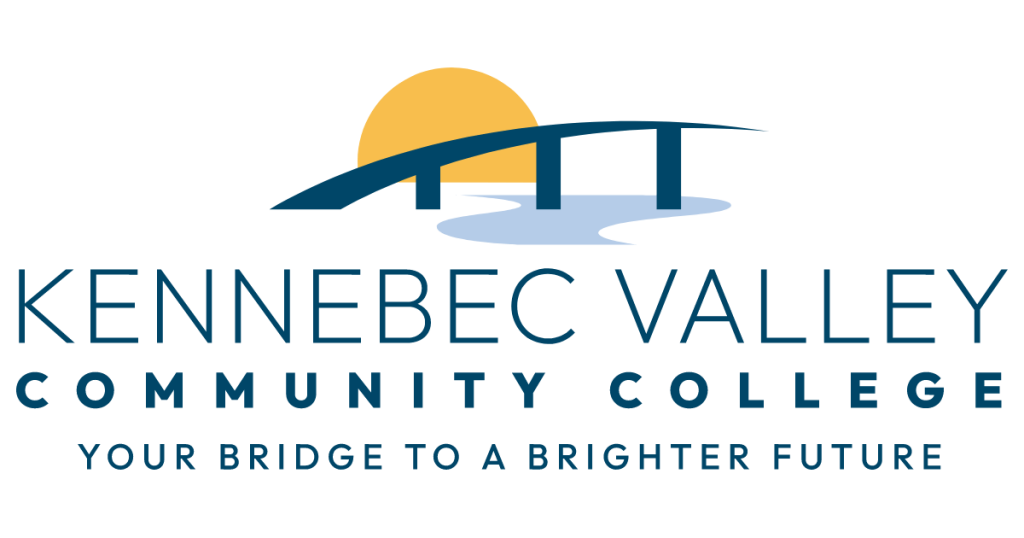
Kennebec Valley Community College’s Early Childhood Education program prepares students to excel in their careers by providing them with a strong foundation in child development, effective teaching practices, and professional skills. Graduates of this program are equipped to work in various public and private institutions and agencies, including Head Start, childcare centers, schools, and family childcare homes.
KVCC offers flexibility in course delivery options, allowing students to choose between on-campus and online learning. It provides convenience and accessibility for students to pursue their education in a manner that suits their preferences and circumstances. With a part-time schedule option, students can balance their education with other commitments such as work or family responsibilities.
The cost per credit for in-state students is $96, while for out-of-state students, it is $134. This affordability makes the program accessible to a wide range of students seeking quality education in early childhood education.
Whether you prefer the traditional on-campus experience or the flexibility of online learning, KVCC’s Early Childhood Education program offers a comprehensive curriculum, accommodating schedules, and affordable tuition rates. It allows you to pursue your educational goals and embark on a fulfilling career in early childhood education.
Master’s Degree Programs in Early Childhood Education
University of Maine at Farmington – Online Master’s in Early Childhood Education (M.S. Ed.)

The Master’s in Early Childhood Education program at the University of Maine at Farmington (UMF) offers a convenient blended format, combining online and face-to-face learning experiences. With 70% of the program offered online and 30% conducted in-person, UMF provides flexibility while still maintaining valuable opportunities for in-person interactions and hands-on experiences.
To complete the program, students are required to earn 36 graduate credit hours within six years of their matriculation. The curriculum consists of 24 core credit hours, covering essential early childhood education topics, ensuring a strong foundation in the field. Additionally, students can choose 12 elective credits, allowing them to personalize their learning experience and focus on specific areas of interest or professional goals.
The coursework delves deep into early childhood education’s theoretical foundations while emphasizing practical application and hands-on experiences. You’ll explore topics such as child development, curriculum design, assessment strategies, inclusive practices, and family engagement, gaining valuable insights into the diverse needs of young learners and the best practices for supporting their growth and development.
Whether you aspire to work in early childhood classrooms, educational administration, research, or advocacy, UMF’s program equips you with the knowledge, skills, and network necessary to make a meaningful impact on young children’s and their families’ lives.
Ph.D. Program in Early Childhood Education
National University – Online Doctor of Philosophy in Early Childhood Education

National University offers a Doctor of Philosophy (Ph.D.) in Education program specializing in Early Childhood Education. This program is ideal for education professionals who aspire to become active scholars in the field and significantly contribute to the existing body of knowledge. By pursuing a Ph.D. in Education, students can enhance their research skills and open up new career opportunities.
The program begins with a focus on theoretical frameworks to establish a strong foundation for understanding the role of theory in a Ph.D. degree. Coursework is tailored to individual research interests, allowing students to conduct research in pre-K-12, post-secondary, and adult learning environments. The program encourages students to generate new and innovative findings that advance early childhood education.
Throughout the program, students receive support from advisors, faculty, and resources to assist them in their coursework, dissertation research, and future work as researchers contributing to the knowledge base of early childhood education.
The Ph.D. in Education program at National University comprises 60 credits, with additional credit hours allowed if needed to complete dissertation research. The program can be completed in an estimated time of 45 months, and the coursework is structured to provide a comprehensive and rigorous academic experience.
Admission to the program requires a post-baccalaureate master’s degree or doctoral degree from an accredited academic institution or an equivalent international institution. The dissertation process is a key component of the program, wherein students work through a systematic and sequential process, guided by faculty, to complete a high-quality dissertation. The dissertation is a scholarly research document that makes an original contribution to the field of educational study.
Conclusion
Imagine the joy of being a part of a child’s early years, witnessing their growth, and laying the foundation for their future. Early Childhood Education degrees provide individuals with the incredible opportunity to make a lasting impact on the lives of young children.
Every child deserves the best start in life; you become a champion for their future success. By pursuing a degree in Early Childhood Education, you embark on a journey of discovery, learning about the intricacies of child development, effective teaching methods, and the power of creating nurturing and stimulating learning environments. These programs also emphasize the value of embracing diversity, fostering inclusion, and actively involving families in the educational process.


